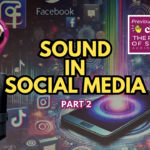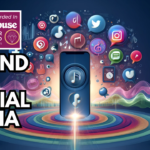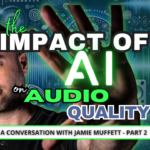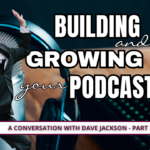In the Clubhouse: The Power of Sound in Social Media – Part 2 “Social media, if you want to be on all of the places, it’s a best practice to have your voice be represented in those places. But, also, the content is representative for that place. People go to Instagram with an expectation, they […]
AI
In the Clubhouse: Sound in Social Media – Part 1
In the Clubhouse: Sound in Social Media – Part 1 “People either have a vision of a Utopian wonderland out there, that we’re going to create all this amazing stuff with AI, or, on the flip side, everybody thinks it’s going to be a dystopian wasteland when we start using AI, and everybody’s going to […]
AI and its Impact on Audio Quality: A Conversation with Jamie Muffett – Part 2
AI and its Impact on Audio Quality: A Conversation with Jamie Muffett – Part 2 “Specifically as it relates to voiceover, that was, the whole industry has shifted hugely, as you know, and it has democratized the industry a huge amount, which is, you know, I appreciate. You know, some people made a lot of […]
Building and Growing Your Podcast: A Conversation with Dave Jackson – Part 2
Building and Growing Your Podcast: A Conversation with Dave Jackson – Part 2 “I was, like, on tour, I spent twenty hours driving all over Ohio, talking to different places. And I work from home, so I don’t drive a ton. And now I was, and I was listening to all these podcasts, and I […]
Creating a Connection with Sonic Branding: A Conversation with Valentin Fleur – Part 2
Creating a Connection with Sonic Branding: A Conversation with Valentin Fleur – Part 2 “I think sound has this ability. We talked about meaning, we talked about engagement, we talked about flexibility, versatility… but I feel like people are used to visual communication. They understand that there’s logo, animation and everything is like the sign, […]
Let’s Explore the Power of Sound: A Conversation with Laurence Minsky – Part 1
Let’s Explore the Power of Sound: A Conversation with Laurence Minsky – Part 1 “I was just looking at a LinkedIn post. And they’re talking about branding and strategy, and everything in there was visual. There was nothing about sound, nothing about texture, nothing about taste. And it all goes together in the brand and […]





